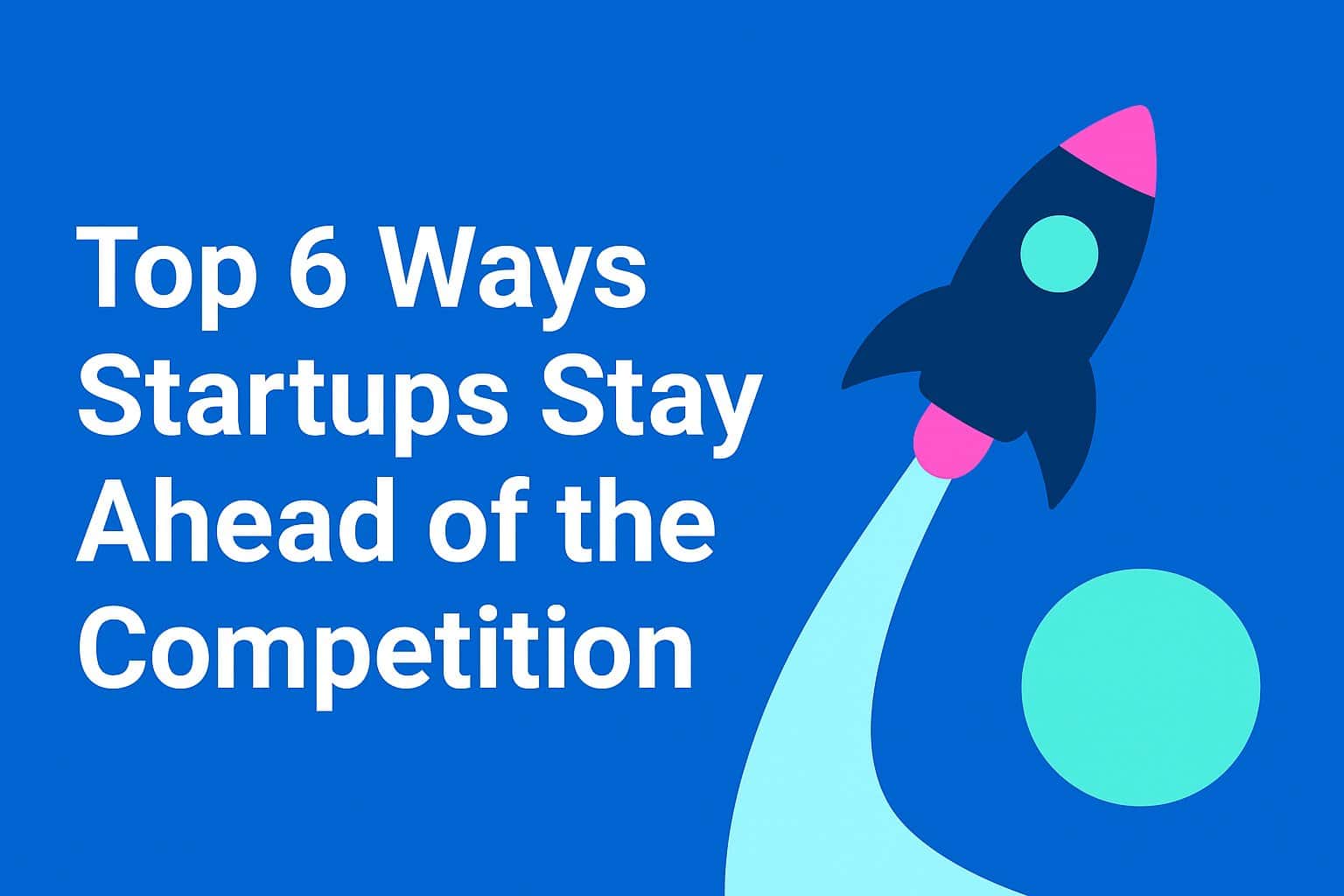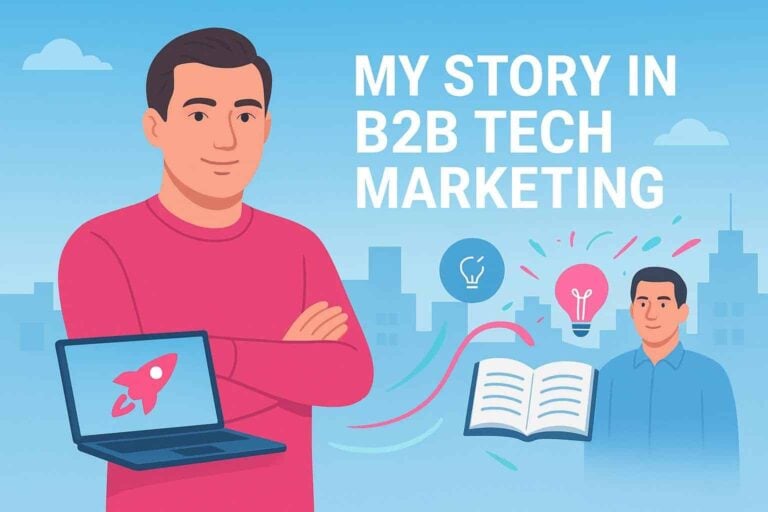Competition is Healthy…
Many B2B tech startups strive to carve out their own niche and be in a product category of one as they see this as a strength, claiming there are no real competitors. This is usually never the case, as there are always solutions that do something similar, whether you regard them as direct competitors or substitutes from adjacent markets. The reality is that you will still have to sell against all the choices a prospect usually has, including building their own in-house workaround or the decision not to buy. While dominating a product category is a worthy ambition for any startup, it requires healthy competition if the overall market is to grow and be worth leading.

Know Thy Enemy
Trying to convince yourself that you have a market space all to yourself is seldom true. Even if it was, it’s more likely to be a curse than a blessing, especially if no other company sees your space as a potentially attractive market. A new category with an unfamiliar solution requires time and money to educate the target audience, which is hard to achieve as a lone player. It’s better to accept that you are always competing for attention and the allocation of a customer’s budget. Tech companies usually hunt in packs and then compete over the spoils. Competition is not a negative dynamic, as it’s responsible for pushing tech businesses to be the best version of themselves, providing customers with the most value from the best solutions and service.
Survival of the Fittest
Having direct competitors helps validate and advance the entire market for a product category, moving it in your intended direction. The combined marketing efforts of all vendors in a particular category work to educate potential customers that your type of solution is a valid proposition. It’s your job to learn how to become better at marketing and selling than your competitors, which could involve targeting a sub-category or industry segment where you have an unfair advantage.
Competition pushes you forward, accelerating your startup’s development because it forces you to think more clearly about your target market and how customers derive value from your solution. This forces you to improve in every way by developing a more complete solution and improving your messaging and targeting of prospects. As a result, your marketing and sales processes improve to the next level.
Differentiate Your Business
One of the benefits of levelling-up your go-to-market activity is that you develop the ability to deposition competitors, substitutes and alternatives. Understanding competitors helps you differentiate by devising unique value propositions that stand out from the crowd. This knowledge can inform product development, marketing and sales strategies, ensuring you address gaps in the market that competitors cannot serve or have overlooked.
Never copy competitor strategies or messaging; that is not what this analysis is about, and it will instantly devalue your offering. Tracking competitors’ moves is about helping you anticipate market trends and adapt, when appropriate, to maintain a competitive edge. The idea is to stay ahead of what competitors are doing, but not to get bogged down and distracted by them.
How Startups Stay Ahead of the Competition:
1. Competitor Analysis
By monitoring your competitor’s actions, product offerings and market positioning, it’s possible to identify potential threats, opportunities and collaboration options, which can advance growth and innovation. Keeping abreast of their activities can also help in setting realistic benchmarks and goals based on industry standards, ensuring your startup remains relevant and competitive.
Market intelligence tools, platforms and industry-specific news aggregators will help you stay updated on industry updates, trends and emerging technologies. Market research through customer surveys and feedback mechanisms can also reveal insights to uncover unmet needs and potential areas for innovation. Participating in industry events also provides valuable opportunities to learn about new developments.
2. Innovate to Differentiate
Continuous innovation is a key differentiator and will help set you apart from competitors in the most effective way. Regular updates and enhancements to products that meet customer needs are important, as this adds more value and improves the user experience. Integrating your product with emerging technologies, such as artificial intelligence and machine learning, helps keep you up to date with market trends.
Investing in research and development can accelerate this process, but innovation doesn’t stop with a novel product. You can innovate your business model, the way you service and support customers, the way you design your organisation and the way your team works together. Look to innovate in every aspect of your business, from marketing and sales through to product design.
3. Strong Brand Identity
A strong brand is what shines a light on your startup, makes you distinguishable and is a growth factor. Building a recognisable and trustworthy brand takes time and investment. Any tech startup that thinks all it must accomplish is to innovate the best technical product and that will be enough is very mistaken. You must craft a clear proposition that communicates your unique value to potential customers, or they will never know you exist, let alone understand your offer.
Maintaining consistency in branding across all channels, platforms and materials helps build and reinforce recognition. Establishing your credentials with thought leadership content and quantifiable examples of customer benefits will enhance your reputation and build trust. Creating and syndicating content, such as case studies, white papers, hosting webinars and speaking at industry events are all important ways to build awareness. The stronger your brand, the more entrenched your solution becomes with your target audience and the harder it will be for competitors to win against you.
4. Exceptional Customer Experience
Providing an exceptional customer experience is vital for client retention and is another way to differentiate your business. This starts with tailoring a solution to the specific needs of your target audience. Then you must be responsive to prospects during the sales process and continue with high levels of care to new clients when they require delivery and support.
The way you treat your prospects and customers will significantly impact customer satisfaction, so you want the entire process to be as positive as possible. Investing in customer service, with training and technology and leveraging techniques such as chatbots or AI-powered support systems to handle enquiries, improves customer engagement. Happy customers will speak to your prospects and may refer your solution to other companies you are targeting.
5. Data and Analytics
Data-driven insights that can inform decision-making are also important for staying competitive in the B2B tech industry. Collect relevant data from various sources, including customer interactions, market trends and your own internal processes. This data can provide insights into customer opinion, behaviour, product performance and market dynamics. Utilising advanced analytics tools can help you extract meaningful insights from data. Predictive analytics, for instance, can forecast customer needs and guide product development. Use this information in your leadership meetings when discussing strategy, planning and budgeting, helping you to make informed decisions and track your progress.
6. Agile Marketing
Digital marketing channels, such as social media, content syndication and email campaigns, allow you to reach a wider audience and engage with potential customers. Regularly evaluating the effectiveness of these channels ensures marketing efforts remain aligned with business goals. Your marketing must focus on the key customer challenges that your solution solves. Adopting agile marketing strategies can help you adapt quickly to changing market conditions.
Personalising marketing messages and providing valuable content helps build stronger connections with potential clients. Monitor your marketing performance and test different ideas and techniques to see what works. Refine your campaigns continuously to identify which messages resonate most with prospects. Devise campaigns that send the right message, to the right contact, at the right time.
Dominating Your Competition
Healthy competition can be a positive indicator that you are operating in a sizeable and sustainable market, as it signals you have something worth fighting for. Staying ahead of the competition requires a multifaceted approach that combines market knowledge, innovation, branding, customer experience, data insights and an agile approach. Companies that excel in these areas may differentiate themselves more effectively, capture market share and build lasting relationships with customers. They are more likely to build a secure, if not dominant, position in their product category.
Startups that remain adaptable and proactive in their strategies as they grow are more likely to continue their success. Your business must build operational capability and capacity over time to address these competitive forces, strengthening the organisation by accessing and acquiring the different skillsets you will need to scale.
You may want to read: “Top 10 Ways Startups Overcome Market Resistance.”







